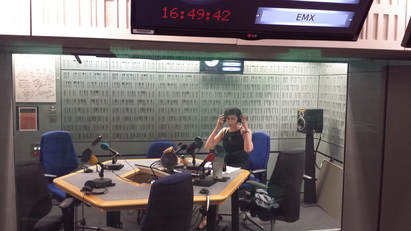|
There is a semi-decent excuse for neglecting this blog for such a long time; as I've been busy writing in other places including articles for enginterns.com, The Huffington Post, and most significantly for me, BBC online science news. The BBC thing started back in March when I discovered the media fellowships run by the British Science Association; a scheme to increase communication between the scientific community and the media. They take scientists (and a few engineers) and place them in media outlets for three to six weeks, then send them to the British Science Festival to report for their media host. This fitted exactly with my desire to learn more about the media and increase public awareness of engineering so after a few weeks of debating, negotiating, convincing and constantly nagging my manager, I applied for the scheme. To my utter delight, my carefully crafted application got me a place with the BBC’s science unit for three weeks. I split this up into a few days a week over the summer, so I could keep up with my real job at the same time. I arrived at the BBC Broadcasting House in London on a sunny July day and was ushered to a desk and told I would be working on Science in Action; a weekly BBC World Service programme. The BBC office was not too dissimilar from a busy Middle Eastern market; it was messy, bustling, and noisy. People were either talking, discussing, arguing with each other or had headphones on to edit audio in peace. My first task was to sift through up-coming scientific publications, find interesting stories, call up the researchers involved and decide if they were a good fit for radio. A story about medicinal marijuana caught my eye and before the day was out I had arranged for the researcher to talk about his work on the show. I quickly got used to the BBC marketplace and became an apprentice rather than a tourist. It was refreshing and enjoyable to be taken out of my comfort zone and thrown into the deep end without much warning. To push myself further, I decided to produce my own radio package, which is a collection of interviews on a specific topic with my narration to link the story together. This was my opportunity to cram in some engineering. I made a short piece about electricity demand response, which was broadcast on Click, the BBC World Service radio weekly technology programme.
The second part of my placement was with BBC online science news. The team was extremely welcoming and I loved being able to call up scientists and engineers and say ‘I work for BBC News, can you tell me about your work?’ The stories I covered varied widely; from dinosaur teeth to the age of the Earth’s magnetic field. This prepared me well for reporting from the British Science Festival at Bradford University; the final leg of the media placement. I could write much more about all of this, but for now I want to encourage other engineers and scientists to get involved with the media through this scheme or others to improve understanding of the work that makes our daily lives possible, and most importantly generate appreciation for the people behind it.
0 Comments
|
Yasmin AliEngineer, writer, presenter Archives
March 2023
Categories |

 RSS Feed
RSS Feed